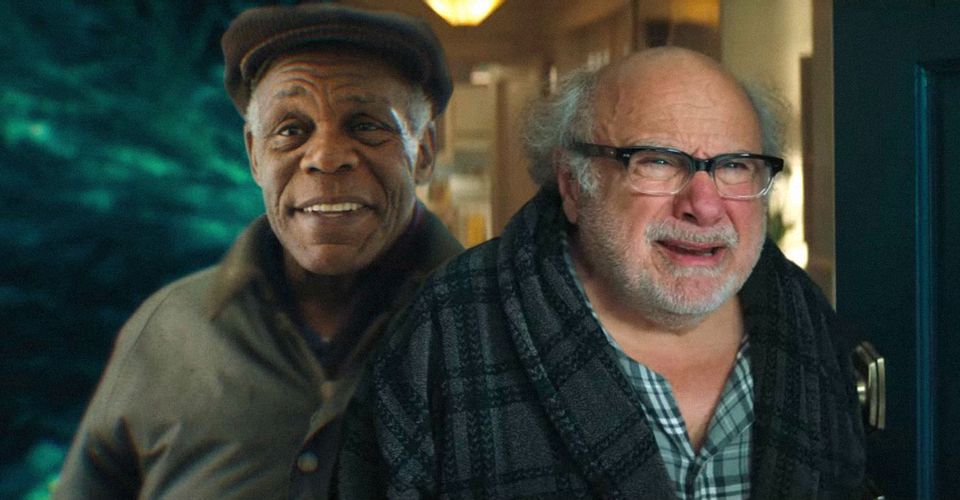Jumanji: The Next Level Abandons One of the Prequel’s Best Elements

Jumanji: The Next Level features the return of the creative talent that made Jumanji: Welcome to the Jungle surprise box office hit, but it also abandons an element of the 2017 film that led to one of Welcome to the Jungle‘s best moments. Dwayne Johnson, Kevin Hart, Jack Black, and Karen Gillan star as video game avatars inhabited by neighborhood teens in the first film, and in the sequel the game avatars are occupied by two of the teens and two elderly estranged business partners played by Danny DeVito and Danny Glover. Throughout most of The Next Level‘s action, the two teenage veterans of the Jumanji world must usher their older counterparts through the video game, complete with NPCs and cut scenes, in order to return to the real world.
In the Jumanji video game, each avatar comes equipped with three black bars on their forearm, indicating three lives, and if an avatar is killed – either by violence, accident, or in one case during Welcome to the Jungle, giving up one life for a dead character – then one of the black bars disappears. According to the first film, if the avatar loses all three lives, the real person dies, but a player can give up one of her lives to revive a dead character, leading to one of the best scenes in Welcome to the Jungle: when Bethany (Madison Iseman) in the Shelly Oberon (Black) avatar breathes life into Seaplane McDonough (Nick Jonas).
The plot’s video game action sequences occupy much of the film’s runtime, but in the scenes that feature conflict between the game’s players, Milo (Glover) and Eddie (DeVito) bicker and squabble, revisiting old betrayals and regrets of lives they couldn’t fulfill. This is one of the film’s central conflicts, and when it’s revealed that a terminal diagnosis prompted Milo to visit his former friend in the first place, the film touches on the theme of mortality. Milo’s attempt to tie up loose ends – to resolve the decades-old dispute that led to the dissolution of his friendship with Eddie – gives the film its emotional core, one that is echoed in the relationship between Spencer (Alex Wolff) and Martha (Morgan Turner).

The themes that constitute that emotional core – forgiveness and mortality – don’t pay off particularly well near the film’s conclusion, and this is where the film missed an opportunity to bring back the element that provided such pathos in the first movie: sacrificing one character’s black bars to give another a chance to continue. If Eddie had to give up one of his lives in the game in order to save his friend, as Bethany did in Welcome to the Jungle, it could have been a genuine moment of reconciliation that advanced the characters’ arcs and resolved one of the film’s conflicts.
Imagine if after Eddie as Smolder Bravestone (Johnson) punched Milo as Mouse Finbar (Hart) into a boulder, a slow realization dawned on all the characters that that was Milo’s last life. Eddie would have to remove the boulder and resurrect his friend. It’s true that the scene would whiplash from comedy to drama, but it would also pay off the character conflict and revisit the resurrection/sacrifice aspect of the game that worked so well in the 2017 film. The writers would have to rearrange a few moments in order to make this work, but overall, such a change would have raised the stakes of the Milo/Eddie interaction.
In the end, Jumanji: The Next Level is centered primarily on broad, crowd-pleasing comedy, but even in these kinds of films, a chance to add more heart and emotional depth to character interaction shouldn’t be passed up.
About The Author

















